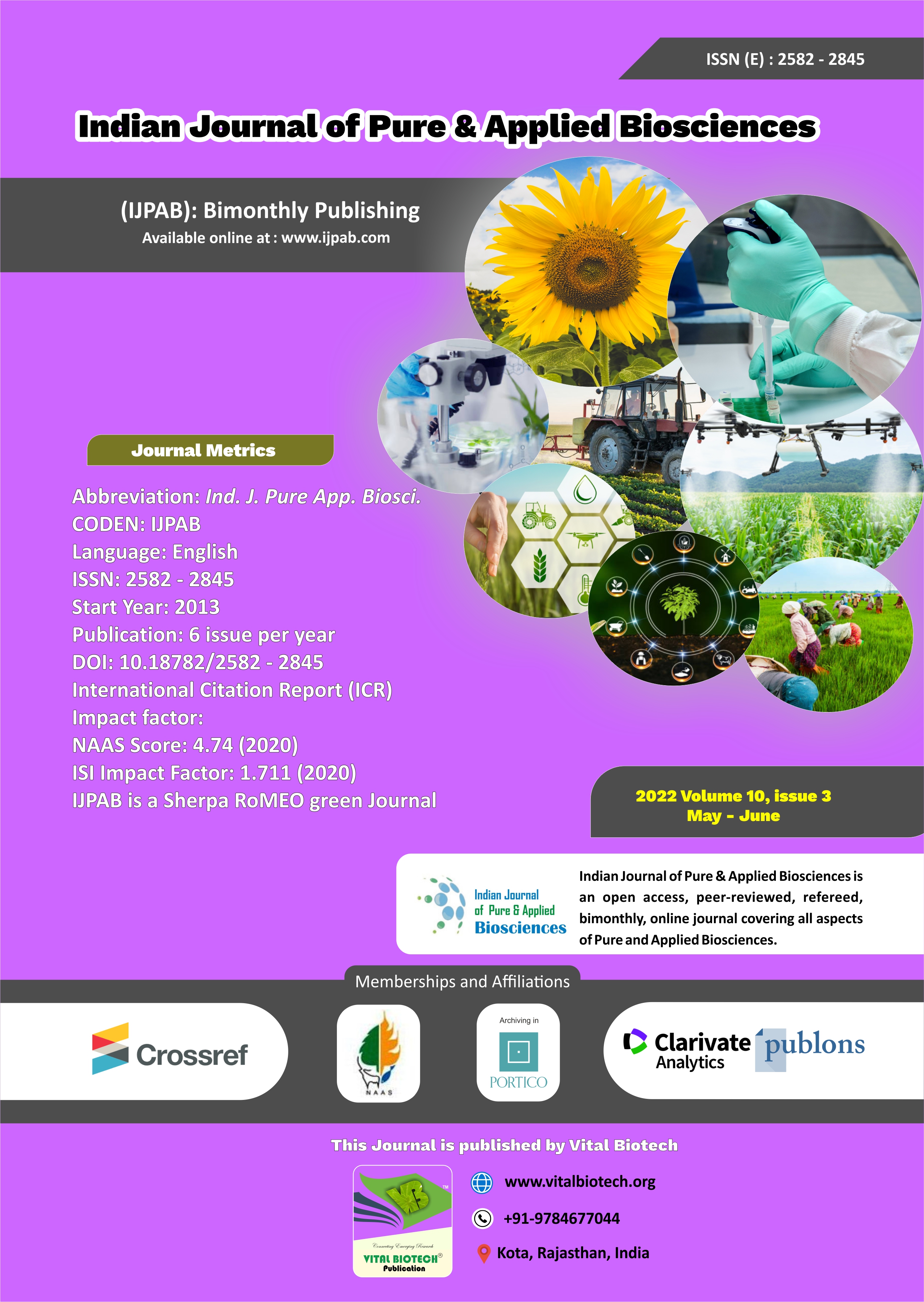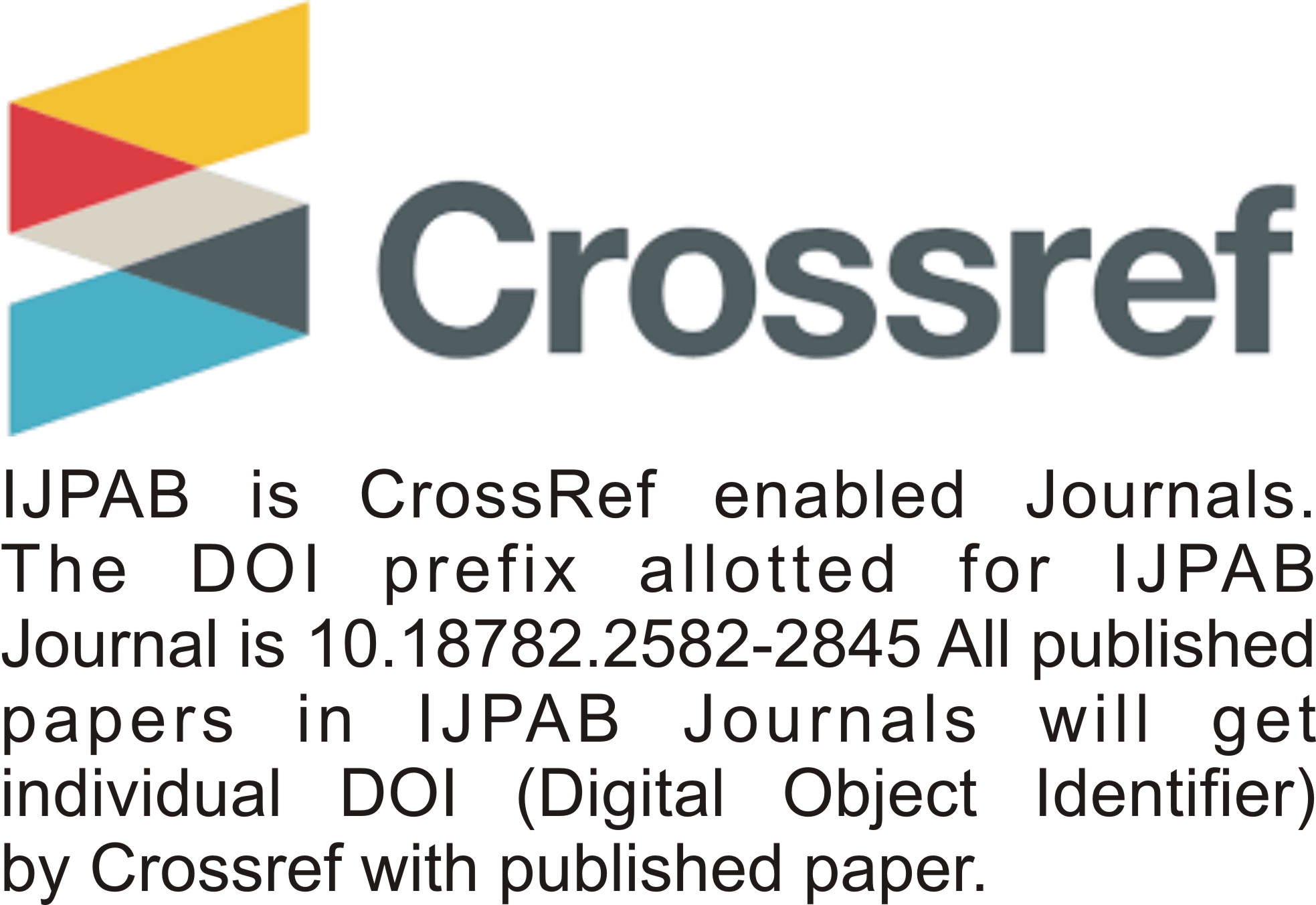-
No. 772, Basant Vihar, Kota
Rajasthan-324009 India
-
Call Us On
+91 9784677044
-
Mail Us @
editor@ijpab.com
Indian Journal of Pure & Applied Biosciences (IJPAB)
Year : 2022, Volume : 10, Issue : 3
First page : (1) Last page : (9)
Article doi: : http://dx.doi.org/10.18782/2582-2845.8907
Performance of Nesidiocoris tenuis (Hemiptera: Miridae) on Three Prey Types under Laboratory Conditions
Oumar Seydi*, Serigne Sylla, Babacar Labou, Mamadou Diatte, Etienne Tendeng, Mor Mbengue, Issa Ale Ndiaye, Amadou Balde, Serigne Omar Sene, Pape Diop and Karamoko Diarra
Research Laboratory in Integrated Production and Protection in Agro-ecosystem – 2PIA; Department of Animal Biology; Sciences and technologies Faculty ; UCAD - Senegal; B.P. 5005 Dakar-Fann
*Corresponding Author E-mail: seydinaoumarseydi@gmail.com
Received: 15.04.2022 | Revised: 23.05.2022 | Accepted: 4.06.2022
ABSTRACT
The zoophytophagous predator, Nesidiocoris tenuis is widely used in integrated pest management programs against various tomato (Solanum Lycopersicum L.) pests. Its effectiveness depends on the presence of diverse prey. The present study evaluated the performance of N. tenuis on the prey: Tuta absoluta eggs, Aphis gossypii nymphs and Tetranycus evansi in the laboratory. Every day nymphal stages of N. tenuis were provided with a quantity of 10, 15, 20, 30, 35 eggs of T. absoluta; 3, 8, 12, 16, 20 nymphs of T. evansi and 5, 10, 15, 20, 25 nymphs of A. gossypii, respectively. The predation capacity of immature stage; N1, N2, N3, N4, N5 and adults of N. tenuis was tested for a respective amount of 15, 25, 35, 45, 55 and 100 individuals for each prey type. Development time of N. tenuis nymphs was affected by prey type. The duration of the immature stage was shorter when the predator fed on A. gossypii nymphs. Food type had no impact on survival of N. tenuis nymphs. The predatory capacity of N. tenuis is greater on T. absoluta eggs. Regardless of the kind of prey, predation ability increases with the age of the predator. Female N. tenuis consumed more prey than males. Our results may have practical implications of interest in mass rearing systems of N. tenuis and contribute to the development of alternative integrated management methods against tomato pests.
Keywords: Tuta absoluta, Biological control, Life traits, Natural enemies, Predations.
Full Text : PDF; Journal doi : http://dx.doi.org/10.18782
Cite this article: Seydi, O., Sylla, S., Labou, B., Diatte, M., Tendeng, E., Mbengue, M., Ndiaye, I. A., Balde, A., Sene, S. O., Diop, P., & Diarra, K. (2022). Performance of Nesidiocoris tenuis (Hemiptera: Miridae) on Three Prey Types under Laboratory Conditions, Ind. J. Pure App. Biosci.10(3), 1-9. doi: http://dx.doi.org/10.18782/2582-2845.8907


